English
 |
 |
 |

English overview
Our curriculum has good coverage of English across each year, with a strong focus on reading, vocabulary, grammar and punctuation. Early Years and Year 1 follow the Read, Write Inc scheme. Children from years 2 to 6 follow ‘The Write Stuff’ writing programme & Pathways th Read reading curriculum.
Teachers use high-quality, language-rich resources, such as referenced planning schemes & frameworks, checklists and model texts across a range of fiction, non-fiction and poetry genres that match the age-related expectations for each year group.
Our curriculum aims to raise children’s literacy levels further through its teaching of other subjects to meet the national curriculum objective that all children should be able to ‘read fluently, and with confidence, in any subject’ by the end of primary school. We are commitment to providing a wide variety of ambitious texts to support children’s depth of knowledge in the foundation subjects. Alongside the texts, the opportunity for children to record and respond to their learning through a variety of genres, such as explanations, reports and recounts, is integral to the wider aim of raising their literacy skills throughout the whole curriculum.
Reading
At Aston All Saints C of E Primary School we believe in the importance of developing children’s word-reading skills and comprehension together with the need to stimulate a love of books and reading. We recognise how closely these two elements are intertwined and that each relies on the other if children are to become life-long readers.
We also believe that every child can learn to read and every child can develop pleasure in reading, motivation to read, vocabulary and understanding given the right environment and teaching and learning opportunities.
To ensure effective delivery of Aston All Saints’ English curriculum intent, the following approaches have been adopted:
-
Every teacher is an advocate for reading, and we strive to inspire children to become ‘hooked on books’.
-
Reading and books are at the centre of our whole curriculum: reading drives and inspires our topics, visits, cross curricular opportunities and our writing. We use ‘reading-into-writing’ strategies in every year group and have carefully sequenced progression across the genres in our reading and writing curriculum.
The National Curriculum for English
An Introduction to Phonics and Early Reading
We combine discreet teaching of reading, including teaching specific comprehension skills, with opportunities for children to practice reading and develop reading fluency and stamina.
All staff are trained to deliver our Read-Write-Inc phonics programme daily and RWI spelling. Children who are still learning to crack the phonic code practise their reading using only decodable books.
Teachers plan opportunities for children to develop their confidence when talking, including planning rich opportunities for vocabulary development, drama and debate.
Our Reading Curriculum.
The teaching of phonics begins with our youngest pupils and continues throughout school until the children are secure in their understanding and application of the techniques. A variety of approaches are taken to ensure that lessons remain engaging and challenging at all levels and every opportunity is taken to reinforce knowledge and understanding across all areas of the curriculum. Lessons are little but often and use pictures, puppets and rhymes in order to make them interesting and entertaining as well as educational.
Books often form the basis of classroom projects too and children have the chance to study a book in detail and use it as a stimulus for other kinds of written or creative work.
Good-quality texts provide opportunities for children to meet objectives drawn from across the National Curriculum for English and a combination of whole-class teaching and smaller guided reading opportunities help to introduce and reinforce skills successfully.
Our teaching of comprehension includes teaching literal, inference and evaluation skills with progression being provided through the increasing challenge of texts being used and from the complexity of the questions a teacher asks or the tasks set, and the quality of the answers they’re willing to accept. To support the teaching of comprehension skills we use Cracking Comprehension and Headstart materials.
Family involvement is an important part of our reading culture. Results of international reading studies have shown that children who are supported in their reading at home are more likely to enjoy reading and tend to achieve more highly at school. We want our children to read at home through choice and for this to happen we ensure that we engage with families to extend the culture of reading that the school has developed. Strategies include:
Training parents, grandparents and adult volunteers from the local community to come into school and listen to children read.
Offering reading advice during open days and parent evenings.
Parents and teachers communicate regularly in our home-school reading diaries.
Ensuring that our environment celebrates reading in all its forms.
All pupils regularly take home a RWI phonics book that is matched to their ability and a book for pleasure. When children move off the RWI programme, they are assessed using the benchmarking kit on a colour banded system and choose from a wide variety of quality books.
Phonics
Our school uses:
Read Write Inc. Phonics for our children in Foundation to Year 2 and for our children in Years 3 and 4 who need to catch up.
Read Write Inc. Spelling for our children in Years 2 to 6.
Read Write Inc. Phonics and Spelling are highly successful literacy programmes for 4-13 year-olds created by Ruth Miskin and published by Oxford University Press. The training and support from Ruth Miskin Training, rated Outstanding by the Department for Education, ensure the programmes have the best chance of success in schools.
The Read Write Inc. programmes are carefully matched to the new curriculum, giving your children the best chance of success in the national tests. They show teachers, teaching assistants and parents step-by-step how to teach all children to become fluent readers, confident speakers and willing writers.
Pupils Falling Behind Catch Up Quickly
The Reading Leader quickly identifies children who are falling behind and discusses them with the class teacher. Children are assessed every half term, but they can be assessed sooner than this, if the Reading Leader and Reading Teacher thinks this is necessary. The Reading Leader puts together a support plan for these children and shares these with the teachers and teaching assistants.
The daily phonics lesson is taught robustly.
The child has 1:1 daily phonics tutoring every afternoon. This is delivered by a trained phonics tutor.
Virtual classroom links (extra phonics lessons) are sent home to parents for extra practice.
Teachers have an extra 5 minute phonics lesson in an afternoon.
Y2 and KS2 Reading Curriculum
When children have securely moved off the RWI programme, they will be benchmarked on the colour banding system from Turquoise and beyond and they will begin their comprehension lessons. Comprehension skills are taught using ‘Cracking Comprehension’ & adopted schemes. During these lessons, children are taught how to retrieve information from the text, discuss the meaning of new vocabulary, answer inference questions, predict what will happen next and sequence events. These skills are then applied during individual reading sessions with the class teacher and teaching assistant.
In English, units of lessons are organised around motivating books and texts. The texts might be from a specific book, a play or poem, or a specific genre such as journalistic writing. A good-quality text provides opportunities for children to meet objectives drawn from across the National Curriculum for English. At Aston All Saints, whole class teaching and individual reading opportunities provide opportunities for learning and reinforcing.
Reading fluency is something we are keen for our children to have during their reading. We teach and assess fluency as part of our ongoing assessments. If children are not fluent, interventions are put in place.
Reading for Pleasure.
Research shows that reading for pleasure has a positive impact on children’s attainment in reading assessments. Children who read for pleasure have enhanced levels of text comprehension, increased knowledge of grammar, and show improvement in their writing. They also have more positive attitudes toward reading than their peers.
“Pupils should be taught to read fluently, understand extended prose, both fiction and non-fiction, and be encouraged to read for pleasure. Schools should do everything to promote wider reading… [Pupils] should be reading widely and frequently, outside as well as in school, for pleasure and information.”



2014 National Curriculum
At Aston All Saints we provide plenty of opportunities for children to read for pleasure and enjoy a variety of texts. We build in time for all children to read independently, share books and hear stories and rhymes being read to them. Books are displayed attractively around school and in classrooms reading areas promote different authors and their work. We hold book fairs and reading-related competitions for pupils of all ages and organise regular visits to the local library and visits from authors and poets.
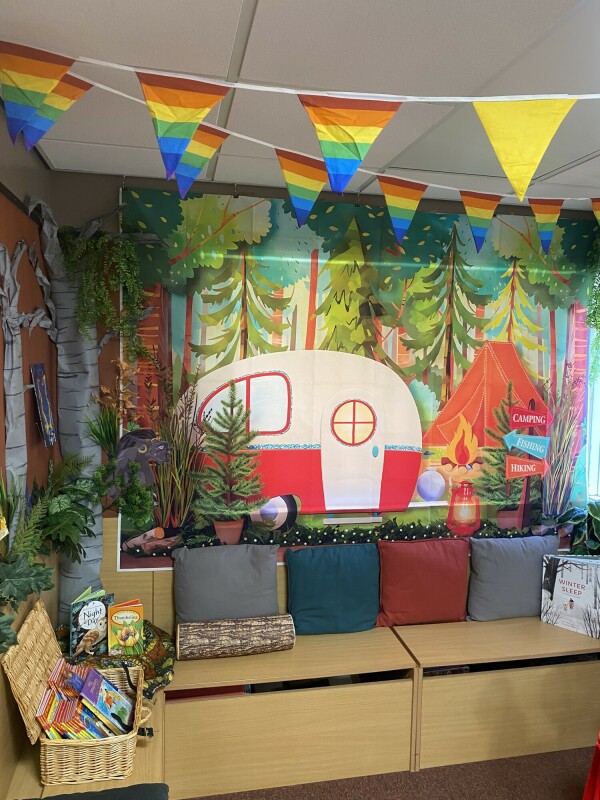
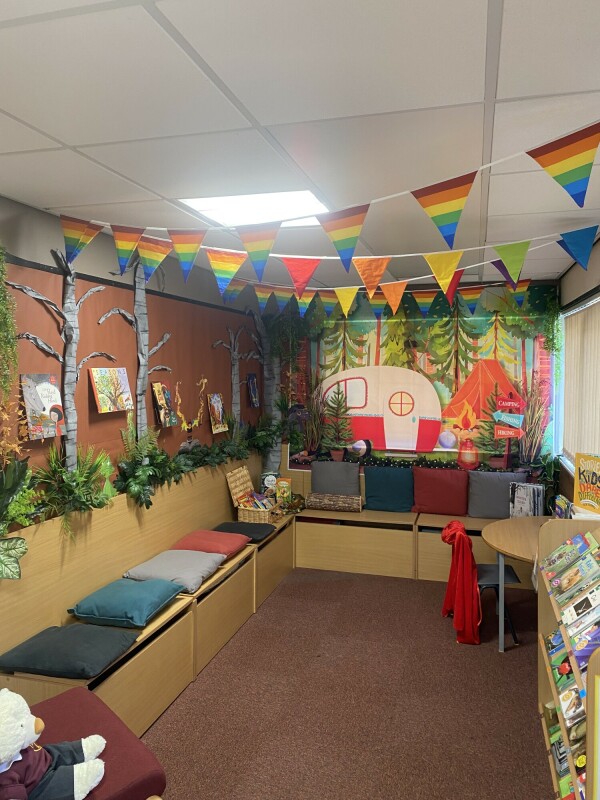
Fostering a Love of Reading
The love of reading is promoted widely across school. Staff are passionate about reading, which inspires children. Core texts are read daily to children by the teacher. This gives the teacher a chance to emphasise their story voice and illustrate their excitement at new stories. Books have been carefully chosen to ensure that the texts are of high quality and age-appropriate. Reading corners have been developed to promote a love of reading and a large number of new books have been purchased. This encourages children to take the books home, therefore improving their vocabulary, fluency and excitement around reading. In addition to this, teachers display recommended books in their book area, to encourage children to want to read them. In our reading diaries, parents are given ideas on how to support children at home with reading. This includes the phonics sounds and comprehension questions. Bookmarks are given to children to encourage them to practise the skills they learn in school, at home. At Aston All Saints we believe that anything we can do to help children to become lifelong readers is time and effort well spent.
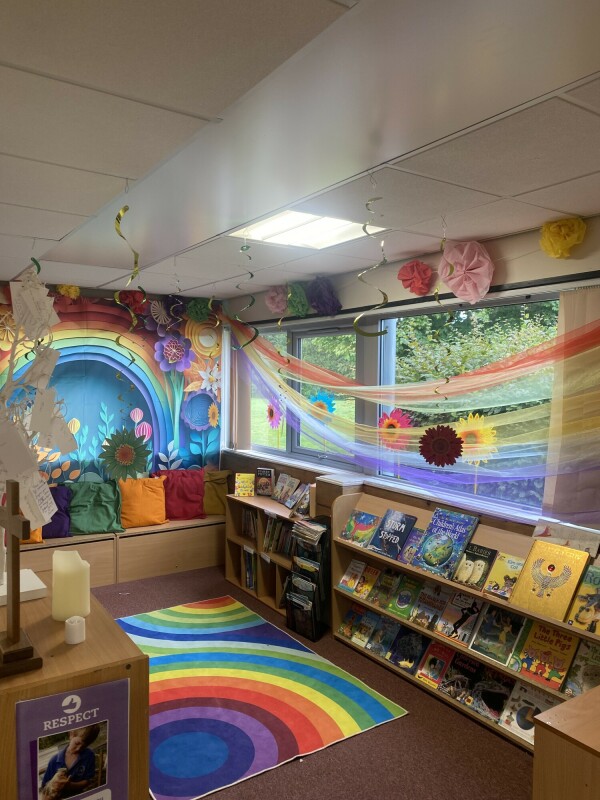
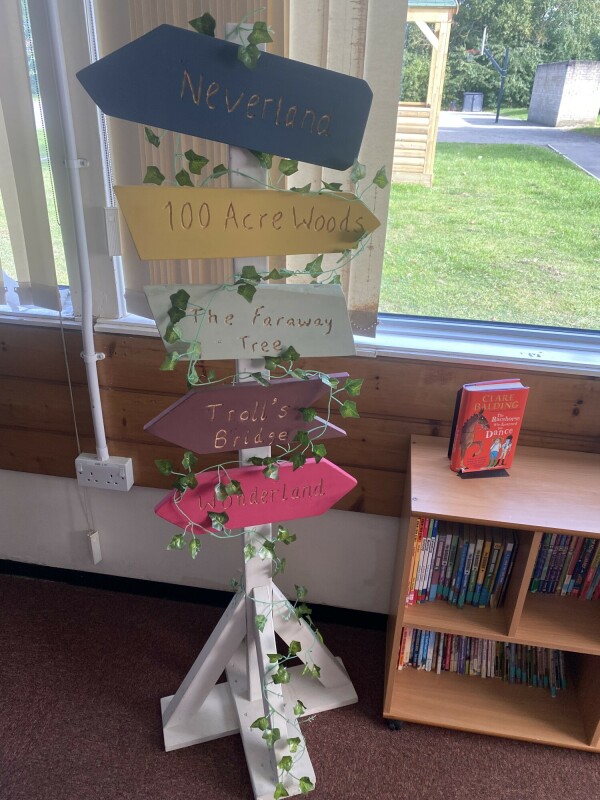
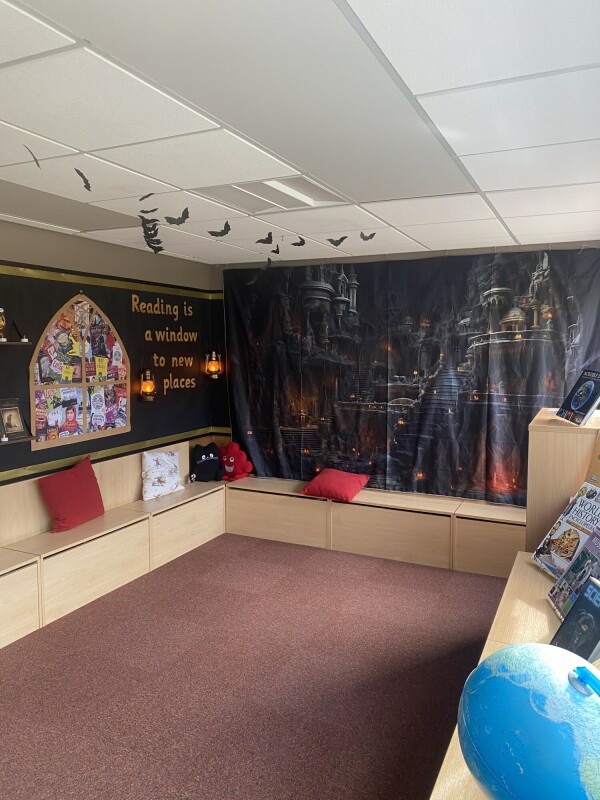
Images/Gallery/Eva-Smith-v2.mov
Images/Gallery/Jasper-Foster.mp4
Images/Gallery/Harper-Bilham-1.mp4
Images/Gallery/Emma-Harrison.mov
Images/Gallery/Amiyah-Willis.mov
Writing
When planning literacy lessons, teachers make links (wherever possible) to other areas of the curriculum to ensure that cross-curricular links provide further context for learning. Teaching blocks focus on fiction, non-fiction or poetry, in line with the 2014 National Curriculum. We take inspiration for our writing from books, poems, film clips, first-hand experiences and more.
Lessons are sequenced to build progressively towards an extended piece of writing with spelling, punctuation and grammar skills, embedded within this sequence. Our youngest children will be rehearsing out loud in order to compose a sentence orally before writing it and our older children will be planning, drafting, evaluating and editing their work as they write. We teach Vocabulary Instruction to develop language and vocabulary from Year 1 to Year 6 and use dictated sentences to develop children’s fluency when writing.
Assessment for Learning is embedded in literacy lessons and children are active in reviewing the successes in their work and identifying, with support from their teacher, target areas for development to ensure a continuous and individualised approach to improving their work.
We use Read Write Inc. Spelling for our children in Years 2 to 6 which teacher's use to reinforce phonics and teach progressive spelling patterns and rules.

